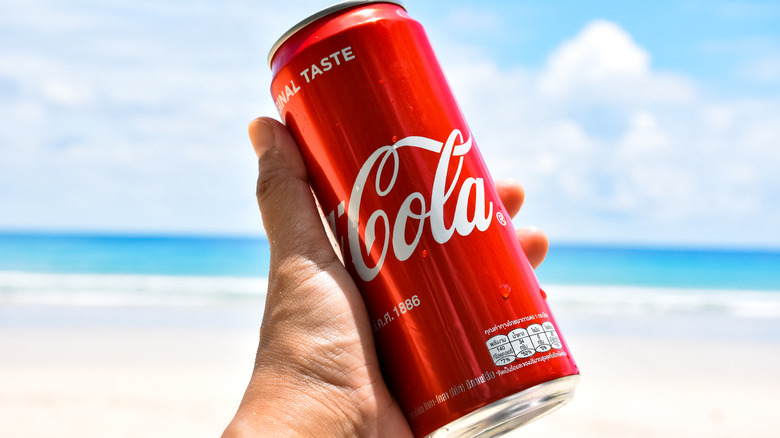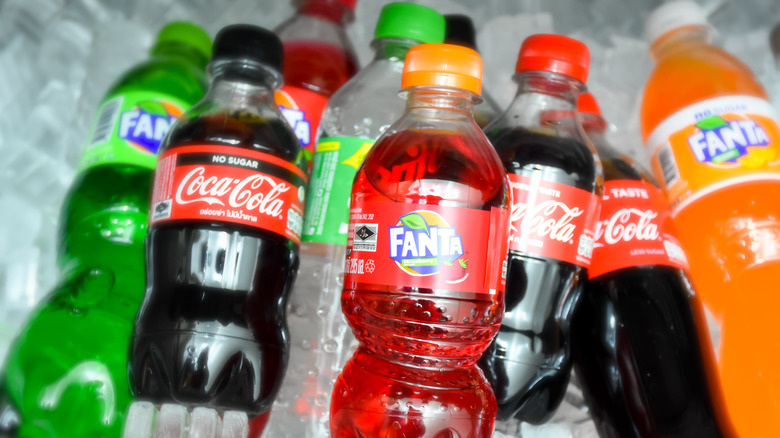The Country That Consumes The Most Coke Products Per Year
According to Coke, its effect on the world since its invention and consolidation (in the late 1800s to early 1900s) has been philanthropic, with sustainability being high on its priority list. Well, at the level of health awareness the world is experiencing right now, the elephant in the room refuses to be ignored.
The fizzy drink empire is one of the biggest contributors to global obesity, per Medical Daily, and they are often engaged in campaigns to downplay the true effect of their sugary brand. They have even gone as far as funding public health conferences in order to suggest that their product is not a cause of obesity and diet-related health conditions, per the British Medical Journal.
In an attempt to stick with the times, Coke has even ventured into healthier (or, at least, less unhealthy) versions of its original product by downsizing its servings to prevent waste, per Food Navigator. Be that as it may, and despite the growing health consciousness among consumers, the average American guzzles down 403 eight-ounce cups in a year, per University Magazine.
Biggest Coca-Cola Fans
Does this make the United States the biggest consumer of Coke? Apparently not, despite the high rates of diet-related health conditions in the United States. As it turns out, the United States is not the country with a big Coca-Cola habit, per Statista. In fact, the United States' southern neighbor holds the first position on this not-so-prestigious list. It was Mexico that took first place in 2019, according to University Magazine.
According to Statista, Coca-Cola's income from Mexican assets amounted to almost $9 billion in 2020, which was only slightly less than its high in pre-pandemic 2019. This is a testimony to the multinational enterprise's grip on the Mexican market. In 2021, the average Mexican drank approximately 634 servings of 8-ounce Coke products, per University Magazine. This is 40% more than the average American consumes, notes USA Today, which warns that sugary drinks may be more of a health risk in Mexico than violent crime.

